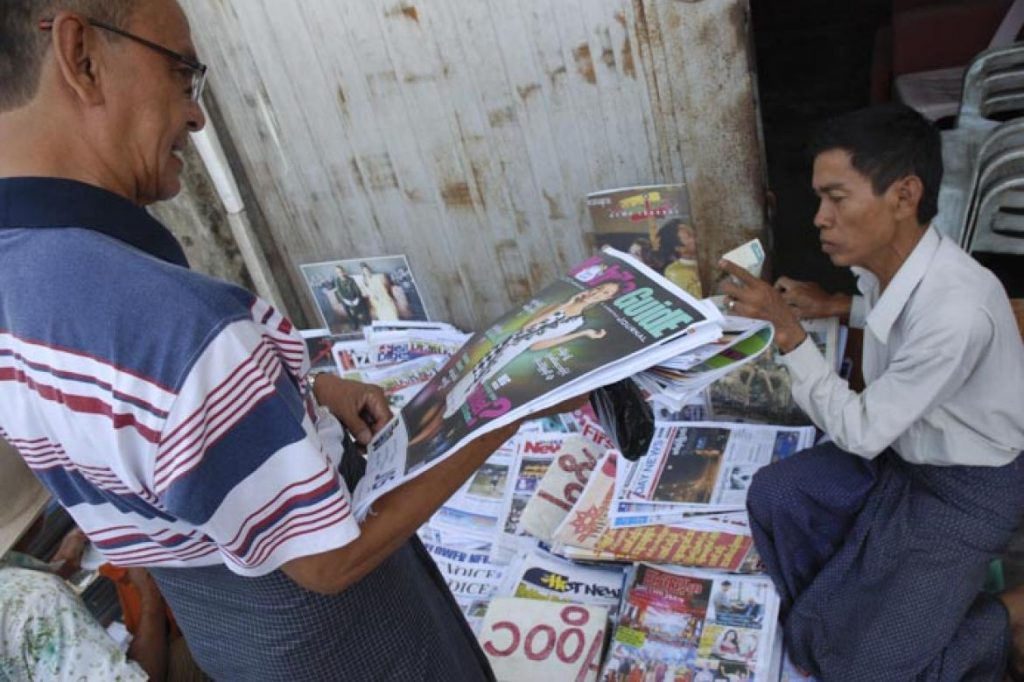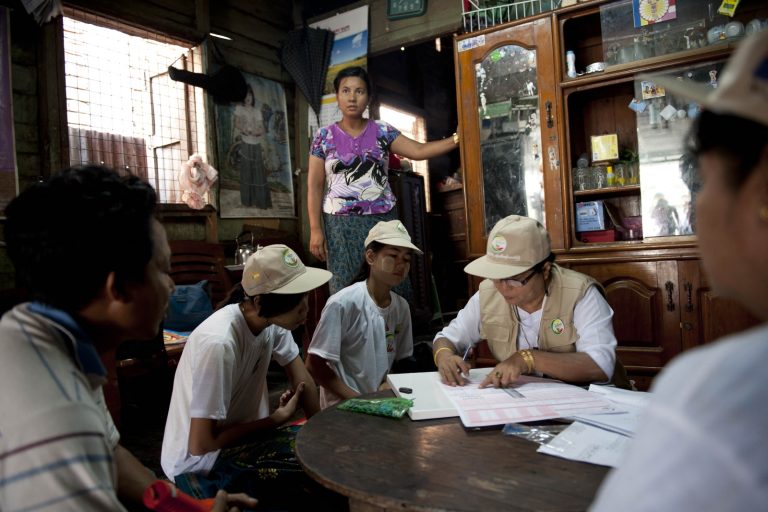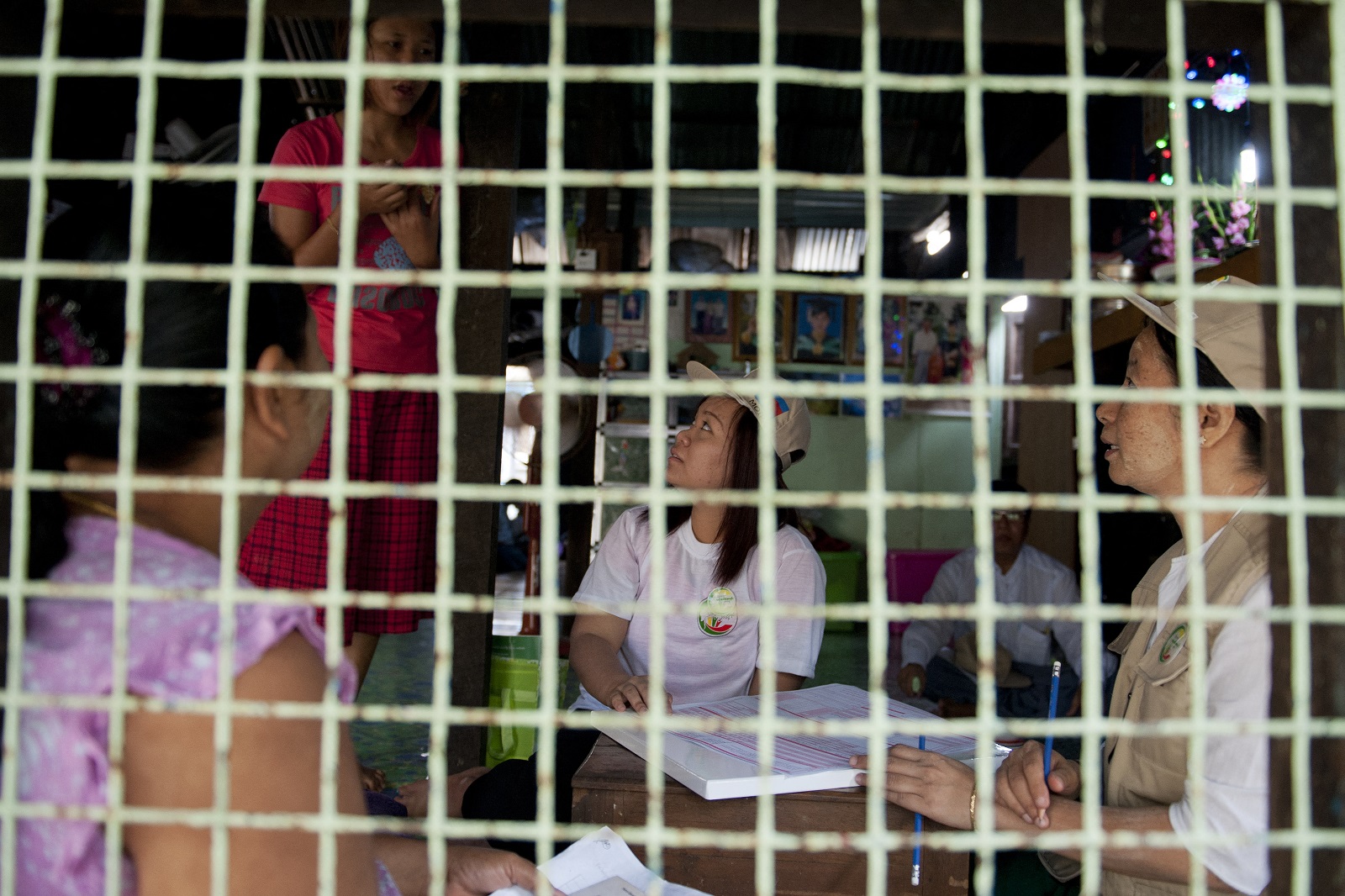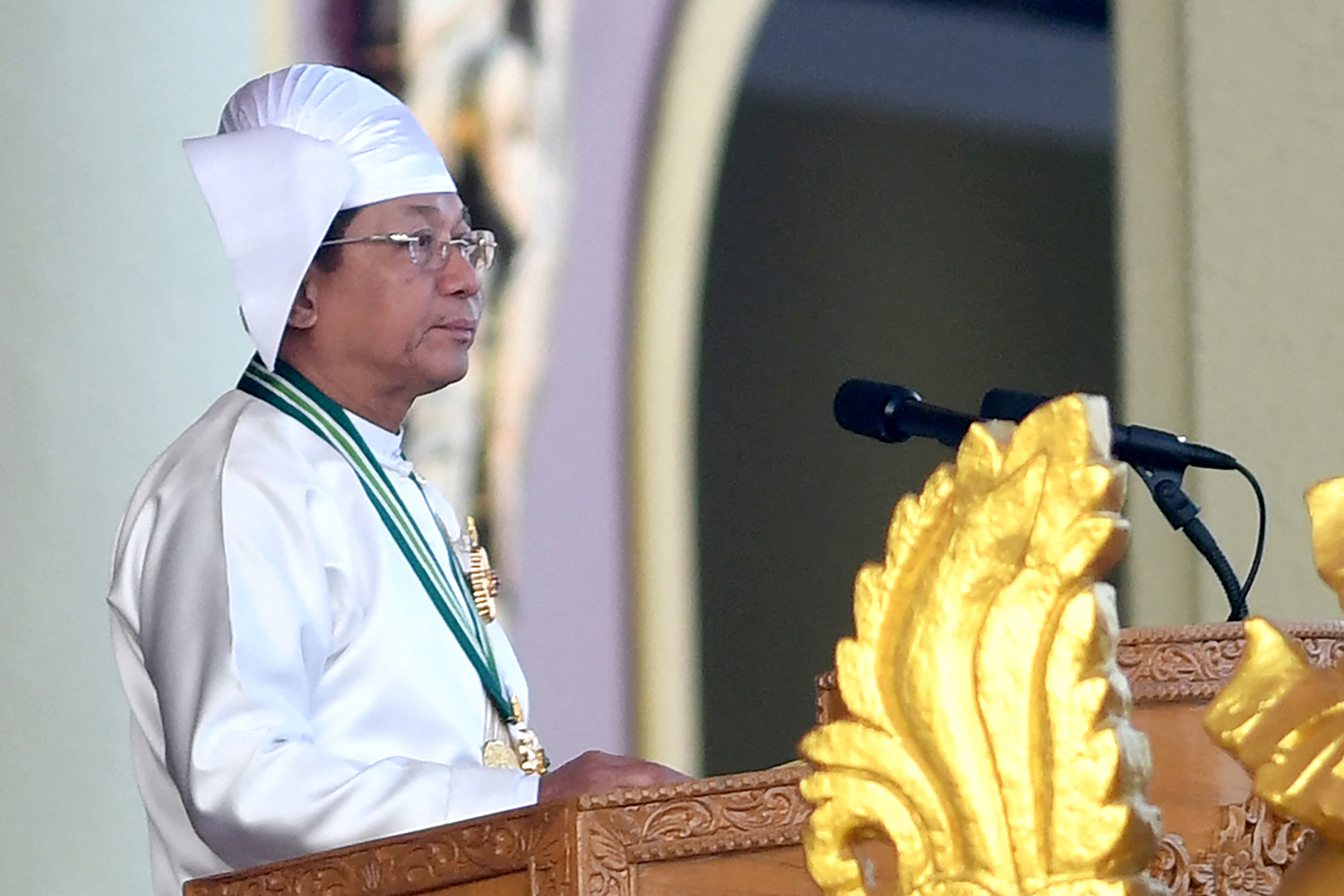With the general election drawing near, the Tatmadaw and the Ministry of Information are trying to browbeat the media into submission.
By HANS HULST | FRONTIER
President U Thein Sein referred to the media as the ‘Fourth Estate’ in his address to the United Nation’s General Assembly in October 2012. Notwithstanding his lofty rhetoric, the honeymoon period that followed the abolition of pre-publication censorship in August 2012 has now ended, and pressure on the press is mounting.
The list of incidents is long. It includes the jail terms with hard labour meted out to five employees of the Unity Journal, the sentencing of five journalists from Bi Mon-Te-Nay Journal in October 2014, the death of journalist Ko Par Gyi in army custody the same month, and the arrest and beating of journalists during the crackdown on the student protesters at Letpadan in March 2015.
The Myanmar Journalists Network issued a statement saying that the actions of the police in Letpadan violated Article 7 of the Media Law, which states that reporters covering demonstrations should be exempt from arrest and be provided protection from the security forces.
In another seemingly minor incident, but a telling one, the Tatmadaw complained about a cartoon, drawn by U Htoo Chit, that was published in the Burmese language version of the Myanmar Times on March 25. Soon after, the Orwellian-sounding Armed Forces Accurate Information Team issued a statement saying that the cartoon insulted the dignity of the armed forces. As a result, the Editor-in-Charge of the Myanmar Times was suspended and the cartoonist sacked, moves that reek of self-censorship. The newspaper also sent the army a formal apology.
Support more independent journalism like this. Sign up to be a Frontier member.
What should we make of incidents like these, as Myanmar’s critical elections approach in November? U Sithu Aung Myint – a former ethnic rebel, writer, and prominent political analyst – feels that in transitional Myanmar, the army often barks, but it seldom bites. “The military has a weak understanding of what free media are,” he said. “When the Kokang issue broke, some journals and newspapers were afraid to publish about it, after the Tatmadaw threatened legal action if they did. But others weren’t afraid, and it turned out the army didn’t sue them.”
This government pushback against reporters has a clear starting date, U Sithu Aung Myint claims – when U Ye Htut was appointed Minister of Information in July 2014. “When he arrived, the original Public Service Media law that was submitted to Parliament was withdrawn. It is also notable that during major events, like the Letpadan crackdown, U Ye Htut kept quiet.”
In the run-up to the election, the minister is upping the ante. On June 27, U Ye Htut told a meeting of broadcasters that their reports should be “unbiased” during the election period. TV and radio stations risk losing their licenses if they air biased views or breach the industry code of ethics, the state-run Global New Light of Myanmar reported the minister as saying.
Those who are deemed to be in breach of the code must apologize publicly, and face the possibility that they will be shut down. The government will take them to court as well, U Ye Htut said. At the time of the minister’s speech, one radio station – Cherry FM – was already under investigation for two “improper expressions” in its programs.

Challenges await the media during the election period. MJN General Secretary Myint Kyaw. (Hans Hulst / Frontier)
U Ye Htut also urged broadcasters to give all parties equal airtime in their reports – a not-so-subtle intimation that journalists should hew closer to the government line.
The minister’s demand to give all parties equal airtime is impractical, with over 90 political parties already registered, said U Zayar Hlaing, the Editor-in-Charge of Mawkun, a monthly investigative magazine published by Myanmar Observer Media Group. He has discussed the matter with some broadcast journalists he has trained in recent years.
“MRTV-4 reporters told me that as a result of the minister’s demand, they will not run any election news,” he said. “They just don’t have the capacity. The 5 Plus news channel will not air any election news, either. FM stations are still contemplating their election strategy. They are all owned by cronies and army people, and the government controls their licenses. They are not independent, so what can they do?”
U Myint Kyaw, the Secretary General of the Myanmar Journalist Network, an organization that protects press freedom and promotes professionalism in Myanmar journalism, points out that the government often calls journalists’ ethics into question if it is unhappy with media reports.
“The Unity 5 were jailed in July 2014 for unethical reporting,” he said. “Other sections of the penal code for trespassing, libel and defamation, are used as well. Another favorite of the government is Article 295 of the penal code, which prohibits insulting of religions.”
U Myint Kyaw is part of a committee within the Interim Press Council that has drafted a guideline on “ethical election reporting.” The guideline’s aims are threefold – to ensure accurate, impartial, and responsible reporting – and it was introduced on May 3 of this year, which is also World Press Freedom Day.
“Media houses and journalists were invited to give feedback on the guidelines,” said U Myint Kyaw. “We organized six workshops to discuss the different modalities. We think that there is broad support for the guideline.”
On July 17, the government’s Union Election Commission (UEC) announced that journalists would have to follow the guideline for ethical election reporting during the polls. The guideline does not mention penalties, so whatever repercussions the government metes out will still probably be in the purview of the courts.
Unlike broadcasters, most of Myanmar’s print media houses are in private hands. The country’s daily newspapers and magazines will jump on the opportunity to report on what some think will be the first free and fair elections since 1960. But they will face their own challenges.
One of these is the sheer quantity of information, said U Sithu Aung Myint. “I expect about 5,000 candidates to run and over 90 parties have registered. The playing field is crowded. Having to report on all of the players is a daunting prospect.”
Another problem is lack of communications infrastructure in remote, ethnic-minority areas. In Puta-O, Northern Kachin State, for example, there is no mobile phone network or internet, and no local newspaper.
“How will these voters have access to information and how will information from these areas reach us? The ethnics have to find ways to amplify their message,” said U Zayar Hlaing.
Capacity and inexperience are other problems the media are grappling with. “The number of journalists has almost doubled since the 2010 elections,” U Myint Kyaw said. “So many of them lack experience, also because during the 2010 elections we weren’t allowed near polling stations. We were very shy at the time.”
U Sithu Aung Myint suspects the government doesn’t care that much about what the print media write. Out of a population of 51 million, less than a million people read private newspapers. Most people are too poor to buy printed news.
A new broadcast law that would open the door to private television networks has been passed by Parliament, but is awaiting final approval from the President’s office before it becomes law. “Radio and TV are free. These are still fully controlled by the government and the army. That’s why the new Broadcast Law is so important. We need private channels. It’s the next step in the liberalization of the media,” U Sithu Aung Myint said.
Even if the government allows the media to report freely, and even if the media restrain from self-censoring, there are likely to be other groups in society who won’t shy away from putting pressure on the media, most notably MaBaTha. Myanmar’s most prominent nationalist movement, led by ultra-conservative monks, recently pressured the government into axing five big developments near Yangon’s Shwedagon Pagoda, and has drafted four controversial laws ostensibly designed to ‘protect race and religion’.
When Mawkun magazine ran an article on the powerful figures supporting the radical group’s meteoric rise, quite a few people were unhappy. “We posed the question if Buddhist monks should be involved in politics at all,” said U Zayar Hlaing. “This is a very touchy issue. The article only mentioned facts, no opinions, and we tried to be balanced. In the end the monks were angry, the Muslims were angry, and officials warned us not to raise these issues again.”
The months running up to the elections will be hectic and fraught for journalists, but U Zayar Hlaing does not want to be too negative about the process. “On paper, the elections and the reforms are a positive milestone. It all depends on how the government will play it. For the moment, I can’t even find my name on the online voter list on the UEC’s website,” he laughed.
The ability of the media to report on the elections ultimately hinges on two factors, Myint Kyaw concluded. “It depends 70 per cent on the government’s intentions, and 30 per cent on our own professionalism and the ability to fully grasp the important issues that are on the table,” he said. “A lack of critical thinking skills is one of our greatest enemies.”
Journalism and freedom of expression
Article 19 of the Universal Declaration of Human Rights enshrines the right to freedom of expression. This right comprises the right to seek, receive and impart information and ideas of all kinds, and includes, for example, political discourse and journalism.
Any restriction of the right to freedom of expression can only be imposed if it meets three criteria: legality (there must be a clearly defined law that is broken), legitimacy (the restriction protects other defined international human rights), and necessity and proportionality. The latter two caveats mean that whatever measures are imposed by the state must be absolutely necessary, and that it can only impose the least restrictive measures possible to meet these aims.
All three of these requirements must be met for restrictions on freedom of expression to be in accord with international standards and human rights law. Incitement to discrimination, hostility or violence are not protected by the right to freedom of expression. States should prohibit such hate speech and take action against it. Myanmar’s government has, notably, restricted the right of journalists to report, but, by contrast, has not acted out against hate speech against the Muslim minority, either in newspapers or in sermons by prominent monks.
(Title photo: Hans Hulst / Frontier)







